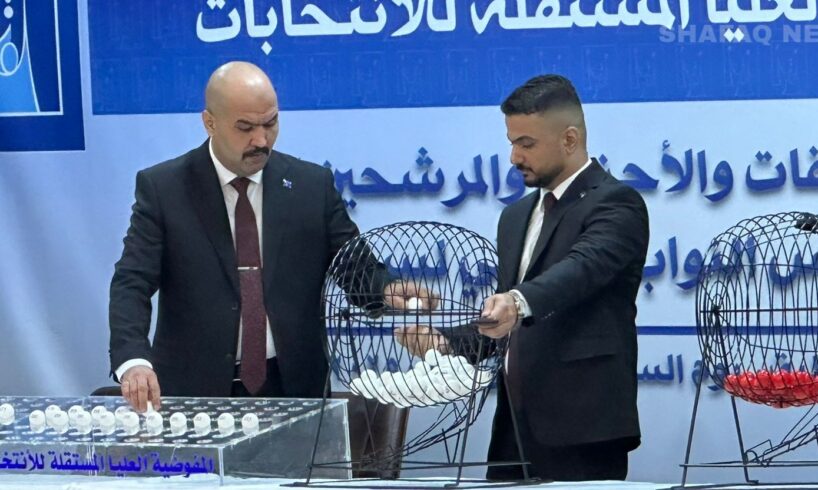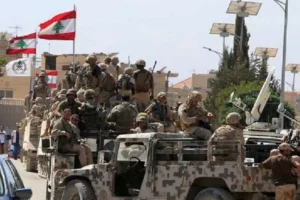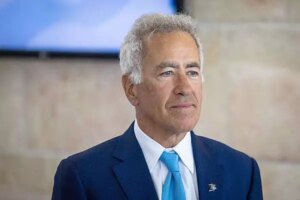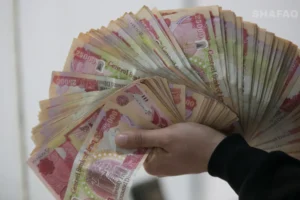
Shafaq News
The November 2025 parliamentary elections in Iraq are being shaped as much by the legacy of the past as by the promises of the future. With more than 580 candidates already disqualified—including 253 barred for past affiliation with Saddam Hussein’s Baath Party—the elections are unfolding less as a contest of programs and more as a struggle over who controls the levers of exclusion.
While the Independent High Electoral Commission (IHEC) presented the mass disqualifications as a matter of legal procedure, the political climate suggests otherwise. In a system where political blocs routinely wield “files” against rivals, de-Baathification has re-emerged as a potent political weapon.
Mass Exclusions as Political Filters
IHEC cited four reasons for disqualification: criminal records, corruption charges, incomplete documentation, and ties to the Baath Party. But the prominence of Baath-related cases has given them disproportionate weight. High-profile exclusions included Rakan al-Jubouri, the former governor of Kirkuk; Haidar al-Mulla, a senior figure in the Azm Alliance; and Ahmed al-Jubouri (Abu Mazen), leader of the National Masses Party (Al-Jamaheer Al-Wataniyha), who quickly substituted his son as a candidate.
Although parties can submit replacements until September 3, the absence of a final cut-off for scrutiny means the list of exclusions may still expand. This open-endedness strengthens the perception that exclusion is less about neutral rules and more about tactical calculations, with de-Baathification providing a ready-made justification.
Weaponizing the Baath File
Analysts argue that the exclusions reveal fractures not only between blocs but within them. Political researcher Ghanem al-Abed told Shafaq News that “more than 140 of those excluded come from Shiite factions within the ruling Coordination Framework,” suggesting that Prime Minister Mohammed Shia al-Sudani and State of Law leader Nouri al-Maliki are each leveraging de-Baathification to constrain rivals.
Former MP Rahim al-Daraji called the exclusions a “political ruse,” warning that parties are using the specter of Baathist return to frighten voters and mask the persistence of ex-Baathists in state institutions. Even within the Coordination Framework, voices such as Fatah MP Mukhtar al-Moussawi accuse leaders of hypocrisy: denouncing Baathists publicly while quietly restoring them to senior positions.
Boycotts under the Baathist Shadow
The shadow of de-Baathification intersects with another challenge: mounting boycotts. Former Prime Minister Haider al-Abadi’s al-Nasr Coalition withdrew from the race, citing the dominance of “political money,” while Muqtada al-Sadr’s Patriotic Shiite Movement, Iraq’s largest bloc in the 2021 elections, had already announced a boycott. Smaller movements such as National Line (Al-Khat Al-Watani) and Tawazon followed suit.
Analysts warn that, combined with exclusions, these boycotts narrow the political field in advance, giving the impression of an arena managed through intimidation and rules designed to restrict competition. In this context, de-Baathification functions not only as a purge but as a deterrent—reminding parties of how easily candidacies can be invalidated.
Inflated Numbers, Hollow Choices
On paper, Iraq’s election looks vibrant: 7,900 candidates registered for 329 seats, spread across more than 400 parties and 140 alliances. In reality, analysts argue, these numbers are inflated by tactical candidacies designed to exploit the Sainte-Laguë allocation system.
“This is political noise, not leadership,” analyst Abbas al-Jubouri remarked, pointing out that the proliferation of lists masks the fragility of alliances. Campaign spending, projected at 2 trillion dinars ($1.5 billion), remains unregulated, feeding perceptions that money and exclusion—not policy—decide outcomes.
The Baathist file amplifies this imbalance by giving parties an additional weapon against one another.
Defamation Politics and the Baathist Ghost
Beyond numbers, campaigns are increasingly shaped by smear tactics, often linked to Baathist associations. Researcher Wael al-Rikabi described this trend as “political defamation,” noting that rival blocs now compete to brand each other as compromised by the Baathist past.
Ibrahim al-Sikeni of the State of Law Coalition accused the United States and the United Kingdom of exploiting the Baath issue to destabilize the Iran-backed Coordination Framework, while analyst Nawal al-Moussawi countered that such discord is largely homegrown, pointing instead to Prime Minister al-Sudani’s favoritism and the temporary nature of alliances. In either case, the Baath file becomes a convenient label for delegitimizing opponents.
Institutions in the Crossfire
De-Baathification also intersects with Iraq’s broader institutional fragility. Amendments to the electoral law in 2023 reinstated rules favoring large blocs, undoing reforms won by the 2019 protest movement. Critics argue this change reflects elite priorities rather than public demands.
The Federal Supreme Court, tasked with ratifying results, remains weakened by vacancies, raising the risk of contested outcomes. Parliament itself left office after passing fewer than 150 laws, with absenteeism widespread. Researcher Ali al-Nasser summed it up bluntly: “Parliament collapsed in performance long before it dissolved.” Against this backdrop, the use of Baath files against candidates reinforces perceptions that institutions are tools of convenience, not arbiters of fairness.
Exhausted Democracy under De-Baathification
The convergence of exclusions, boycotts, inflated numbers, smear politics, and weak institutions points to an exhausted democratic process. By invoking the Baath Party’s ghost as a political weapon, elites risk deepening divisions rather than building accountability.
“This is not democratic momentum—it’s democratic exhaustion,” commentator Abdullah al-Kanani warned. Unless Iraq addresses the structural misuse of de-Baathification and restores confidence in its institutions, the November elections may entrench dysfunction rather than resolve it.
In the end, the Baath file—once meant to purge dictatorship’s remnants—has become the currency of power struggles. Instead of lifting Iraq beyond its authoritarian past, it risks trapping its politics in the perpetual recycling of old ghosts.
Written and edited by Shafaq News staff.





